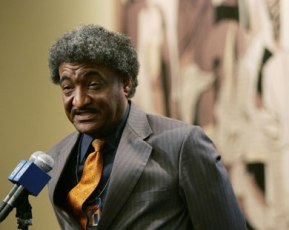Sudan says ICGLR leaders want an African meeting to discuss new measures against ICC
September 8, 2013 (KHARTOUM) – The head of the Sudanese delegation to the Extraordinary Summit of the International Conference on the Great Lakes Region (ICGLR) that took place in Uganda this week said that leaders at the regional bloc called for an African meeting to discuss new measures against the International Criminal Court (ICC) including en masse withdrawal.

Abdul-Halim told ICGLR summit in his remarks that Africa must learn its lesson from the Kenyan situation which is that the ICC is a “questionable” body that targets the stability and security of Africa and as such the continent must confront this court in a way the safeguards the unity and safety of African states and their people.
The former UN ambassador disclosed that the ICGLR summit also discussed the “blackmail” being practiced by the ICC against the elected Kenyan leadership, indicating that the summit has reviewed the ICC practices against the African countries and its threat to the stability of Kenya.
He added that the Kenyan delegation briefed the summit on the Kenyan Parliament’s decision on to withdraw from the Rome Statute which is the basis of the Hague-based court.
Abdul-Halim went on to say that the leaders at the summit recommended in their deliberations on the sidelines of the summit and in the presence of the Chairman of the African Union Commission, the importance of convening an extraordinary African summit towards adopting a more stronger African stance against the ICC including withdrawal from the court.
He stressed that the developments in Kenya confirms the correctness of the Sudanese position which regards the court as a politicized body that exclusively targets Africans.
Kenya’s parliament on Thursday voted to pull out of the jurisdiction of the ICC in a symbolic move as an ICC spokesperson said withdrawal will not affect the impending trials of President Uhuru Kenyatta and his deputy William Ruto.
Kenya’s parliament is dominated by the Jubilee Coalition which brought Kenyatta and Ruto to power.
Kenyatta and Ruto were charged by the ICC for crimes against humanity for their alleged role in the 2007 Kenya election violence which left about 1,200 dead and 600,000 displaced from their homes. The two men deny the charges saying it is politically motivated.
The violence erupted after allegations of electoral fraud following the announcement that Mwai Kibaki won the majority of votes for the presidency against his main rival Raila Odinga.
Former UN Secretary General Kofi Annan brokered a power-sharing deal between the Orange Democratic Movement (ODM) headed by Odinga and Party National Unity (PNU) led by Kibaki.
Furthermore, they agreed that perpetrators of the violence would face justice. A commission of inquiry was formed to investigate the violence and recommended those behind it should be tried in Kenya or The Hague.
The ICC intervened after the Kenyan parliament shot down several attempts to establish a local tribunal and many MP’s said they wanted the cases investigated at the Hague.
Kibaki and Odinga gave the ICC prosecutor the green light to initiate prosecutions in late 2009 without making an explicit referral.
However, once the ICC prosecutor named the suspects he wants the judges to charge, the Kenyan government announced its intention to request a deferral pursuant to Article 16 of the Rome Statute which allows the UNSC to suspend the court’s process in a specific case for 12 months that can be renewed indefinitely.
After Kenyatta and Ruto won the elections, they pushed the AU to issue a resolution to drop the case or refer the case back to Kenyan courts.
The ICC judges can refer the cases back only if similar cases are brought against the pair in Kenyan courts.
Ruto’s trial at the Netherlands based court begins on Tuesday next week while Kenyatta’s begins in November.
The ICC has been criticized by African leaders for allegedly targeting Africans, an allegation the court has denied.
The Hague-based court has opened investigations into eight cases, all of which are in Africa including Uganda, Democratic Republic of the Congo (DRC), Central African Republic (CAR), Darfur, Kenya, Libya, Côte d’Ivoire and Mali.
Five of the eight cases were referred voluntarily by the African governments in question; two through a UNSC resolution supported by the bulk of African members in the council at the time and one was opened at the ICC prosecutor’s request.
But the AU has insisted that the court is unfairly targeting African nations and sought to introduce changes to the Rome Statute that would change the mechanisms of ICC case deferrals. It also pushed for the appointment of an African prosecutor which came to light with the election of Gambian lawyer Fatou Bensouda into this post last year.
(ST)
